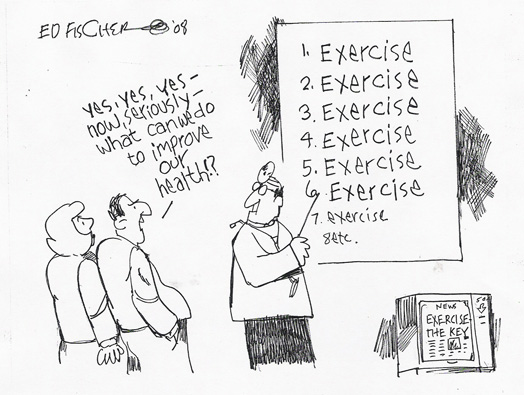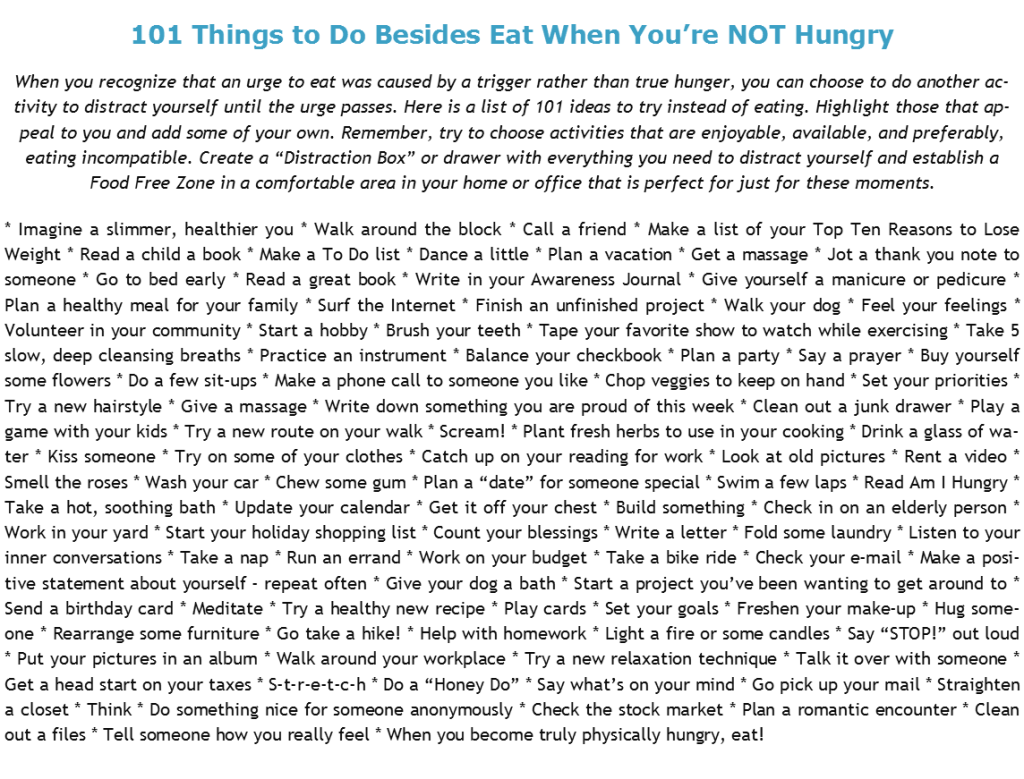Mindful Eating-The Where?
Developing mindfulness in eating produces great benefits. First you become more aware of your relationship with food starting with WHY? you eat. Second, you figure out the reasons you eat which might include eating triggers that have nothing to do with hunger like boredom or stress, (review the WHEN? to eat). You realize that food never is the answer and that there are lots of other things you can do instead of eating. Check out Dr. Michelle May’s 101 Things to Do Besides Eat When You’re NOT Hungry.
I really like this list. Along with some crazy things, there are plenty of “yeah, I could do that” kind of things. Highlight the ones that might work for you and organize/arrange your environment to make them happen.
Focus on the WHAT? and the HOW? and HOW MUCH?
Third benefit to eating more mindfully is that you start accomplishing more in your life than you thought possible all because of your healthier relationship with food and your subsequent new found energy.
THE WHERE?
Based on my fourteen years of learning from bariatric patients, it is very clear what sets apart those who achieve long lasting weight loss from those who do not. The number one behavioral pattern established by those who keep the weight off is . . . EXERCISE! Increased activity in the form of walking, gardening, biking, swimming, stair taking, standing, dancing, playing . . . all forms of body movement make the difference. I find this to be even more differentiating than eating habits. Yes, what we eat, how and how much we eat make an important difference in weight management, but the WHERE? do I invest the fuel I eat determines how long the weight stays off. Increased activity absolutely changes how your body burns calories. If muscle is not developed then the body won’t burn calories and the only way to build muscle is to use muscle. So get up and get moving!
Moreover, exercise not only burns excess weight but also thwarts chronic disease. When you’ve got 9 minutes, watch this YouTube video from Dr. Mike Evans titled “23 1/2 hours: What is the single best thing we can do for our health?” INTRIGUING? It might just change your life.



